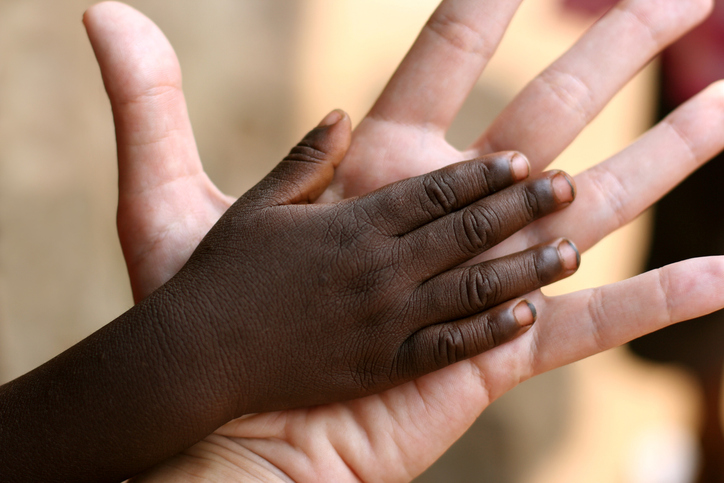Top 5 Strategies for Cross-Cultural Parenting Success
To succeed in cross-cultural parenting, foster awareness of different cultures. Embrace diversity within your family, respecting traditions and blending parenting styles. Open communication builds trust and unity among family members, encouraging dialogue about values and differences. Celebrate cultural traditions, creating lasting bonds through shared experiences. Mutual respect is essential, setting clear boundaries and promoting cooperation. Implement these strategies to cultivate a harmonious multicultural family dynamic that transcends cultural barriers.
Key Takeaways
- Cultivate cultural awareness for understanding diverse perspectives.
- Embrace diversity in parenting styles and traditions.
- Foster open communication to build trust and understanding.
- Celebrate cultural traditions to strengthen family bonds.
- Establish mutual respect for harmonious multicultural environments.
Cultivate Cultural Awareness

To enhance your cross-cultural parenting success, cultivating cultural awareness is essential for fostering understanding and connection with your children. Cultural sensitivity is key in maneuvering the diverse landscape of parenting. By embracing a global perspective, you can better appreciate the unique backgrounds and experiences that shape your children’s worldview.
Research shows that children raised in environments that value cultural awareness tend to display higher levels of empathy and open-mindedness. By actively engaging with different cultural practices, traditions, and beliefs, you not only broaden your own perspective but also set a powerful example for your children to follow.
Practically, you can incorporate cultural diversity into your daily routines by celebrating holidays from various cultures, exploring different cuisines, and reading books that highlight diverse characters and traditions. Encouraging open communication and curiosity about different cultures helps create a nurturing environment where your children feel valued and understood for who they are.
Embrace Diversity in Parenting

Embracing diversity in your parenting approach is essential for nurturing a supportive and inclusive environment for your multicultural family. Cultural sensitivity plays a pivotal role in understanding and respecting the diverse backgrounds within your family unit. Recognizing and appreciating the unique traditions, beliefs, and values of each culture represented in your family fosters a sense of belonging and unity.
Parenting styles may vary greatly across different cultures. It’s important to be open to exploring and incorporating elements from various parenting approaches to create a harmonious blend that suits your intercultural relationships. By embracing the diversity of parenting styles, you can discover new methods that resonate with your family dynamics and values.
In multicultural families, the richness of traditions and perspectives can enhance the parenting experience. Embrace this diversity as an opportunity for growth and learning, both for yourself and your children. Creating a safe space where different cultural backgrounds are celebrated and respected lays a solid foundation for a strong and united family bond.
Foster Open Communication

In nurturing a supportive and inclusive environment for your multicultural family, fostering open communication is crucial to building strong relationships and understanding among family members.
To build trust and encourage dialogue, it’s vital to create a safe space where everyone feels heard and valued. Start by actively listening to each family member, validating their feelings, and promoting an open exchange of thoughts and emotions.
Encourage discussions about cultural differences, beliefs, and values, emphasizing the importance of respecting diverse perspectives.
Research shows that families who engage in open communication experience higher levels of trust and harmony. By fostering an environment where everyone feels comfortable expressing themselves, you lay the foundation for mutual understanding and connection.
Remember to be patient and empathetic, especially when addressing potentially sensitive topics. Regular family meetings or check-ins can provide opportunities for sharing experiences and addressing any concerns that may arise.
Ultimately, fostering open communication not only strengthens your family bond but also sets a positive example for embracing cultural diversity in a meaningful way.
Celebrate Cultural Traditions

By actively participating in and honoring cultural traditions, you can strengthen family bonds and create meaningful connections within your multicultural household. Cultural exchange within the family provides a platform for sharing beliefs, practices, and values, fostering a sense of unity and understanding among family members. Through these shared experiences, family bonding is enhanced, laying the foundation for a strong and cohesive family unit.
Inter generational perspectives play an important role in celebrating cultural traditions. Older family members bring wisdom and firsthand knowledge of traditions, enriching the experiences for younger generations. This exchange of knowledge creates a deep sense of connection to heritage and roots, instilling a sense of pride and identity within each family member.
Engaging in cultural traditions not only promotes a sense of belonging but also helps children develop a greater appreciation for diversity and different ways of life. By celebrating these traditions together, you’re creating lasting memories and nurturing a sense of unity that transcends cultural differences.
Establish Mutual Respect

To foster a harmonious and inclusive environment within your multicultural family, it’s imperative to establish mutual respect as a foundational principle in all interactions and relationships. Building trust through mutual respect is essential for creating a strong bond among family members from diverse cultural backgrounds. Respect forms the cornerstone of effective communication and understanding, allowing you to navigate differences with empathy and openness.
Research shows that families that prioritize mutual respect tend to have healthier relationships and experience less conflict. By actively listening to each other’s perspectives and acknowledging the value of diverse viewpoints, you can cultivate an atmosphere of acceptance and cooperation within your family.
Practical steps to establish mutual respect include setting clear boundaries, encouraging open dialogue, and modeling respectful behavior yourself. Remember that mutual respect is a two-way street – by showing respect to others, you’re more likely to receive it in return.
Embracing this principle won’t only strengthen your family dynamics but also create a supportive environment where everyone feels valued and understood.
Frequently Asked Questions
How Can I Handle Conflicts Arising From Cultural Differences?
When conflicts arise from cultural differences, try open communication strategies to understand each other’s perspectives. Practice conflict resolution techniques, show cultural sensitivity, and be willing to compromise. These approaches can help navigate cross-cultural parenting challenges effectively.
What if My Partner and I Have Conflicting Parenting Styles?
When you and your partner have conflicting parenting styles, it’s essential to communicate openly, understand each other’s perspectives, and find common ground. Compromise solutions that blend both approaches and seek mediation if needed to build a harmonious parenting dynamic.
How Do I Navigate Cultural Clashes With Extended Family Members?
When dealing with criticism from extended family due to cultural clashes, it’s important to set clear boundaries. Communicate openly, respectfully, and assertively. Remember, your parenting decisions are valid and should be respected, even if they differ from traditional beliefs.
Is It Possible to Blend Multiple Cultural Traditions in Parenting?
Yes, it’s possible to blend multiple cultural traditions in parenting by fostering open communication, mutual respect, and a willingness to learn from each other. Cultural understanding and flexibility are key to creating a harmonious family environment.
How Can I Address Discrimination or Prejudice Towards My Child?
When addressing discrimination or prejudice towards your child, it’s essential to actively address microaggressions, support their biracial identity, advocate for inclusivity, and educate others to foster a more understanding and accepting environment for your child.
Conclusion
To sum up, by cultivating cultural awareness, embracing diversity in parenting, fostering open communication, celebrating cultural traditions, and establishing mutual respect, you can navigate the challenges of cross-cultural parenting with success.
Remember to approach each situation with empathy and understanding, drawing upon research-based strategies and practical tips to create a harmonious and enriching environment for your family.
With patience, compassion, and a willingness to learn, you can create a strong foundation for your children to thrive in a multicultural world.

Hey there! 👋 I’m a proud mom and passionate writer, sharing my parenting journey. 📝 Join me as I navigate the ups and downs of motherhood, offering tips, advice, and a sprinkle of humor along the way. 🌟







